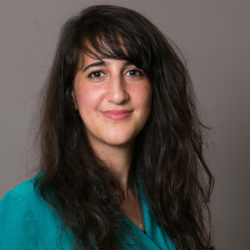
Please join the International Relations Speaker Series for a presentation by Prof. Rochelle Terman, Assistant Professor, Department of Political Science, University of Chicago.
Research on international norms emphasizes the role of information, but often relies on a key premise: that the messages produced by international actors reach intended audiences. Yet this assumption is rarely studied directly, leaving us with scant knowledge about what people actually learn when accessing information about norms like human rights. This paper reports descriptive findings from an audit of Google search for human rights queries across 146 countries and 70 languages. We find that search results vary markedly across countries, indicating that different users are directed to different resources about human rights. Some people receive information produced by prominent international organizations, while others learn about human rights mainly from governments and local publishers. These disparities likely reflect differences not only in the sources of content, but also in the substantive messages about human rights. Furthermore, we find that natural language—far more than any other factor—correlates strongly with variation in search results, suggesting a prominent “language barrier” to international human rights discourse. Our results have significant implications for debates surrounding norm diffusion and knowledge production in world politics, while offering practical guidance for human rights advocates.
Rochelle Terman is an assistant professor in the Department of Political Science at the University of Chicago. She specializes in international norms and human rights. Her first book, The Geopolitics of Shaming: When Human Rights Pressure Works—and When It Backfires, was published in 2023 with Princeton University Press. Terman has also produced work on gender, Islamophobia, and computational social science. She is currently a faculty affiliate with the Center for Middle Eastern Studies, the Center for the Study of Gender & Sexuality, the Committee on International Relations, and the Program on Computational Social Science.
Please use the "Registration" link for both in-person and virtual attendance.
Audience
- Faculty/Staff
- Student
- Graduate Students
Interest
- Academic (general)